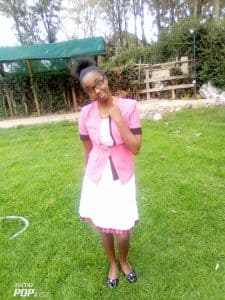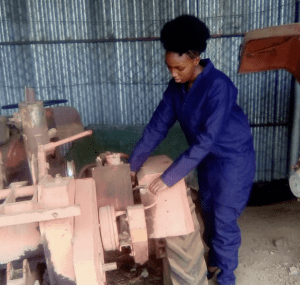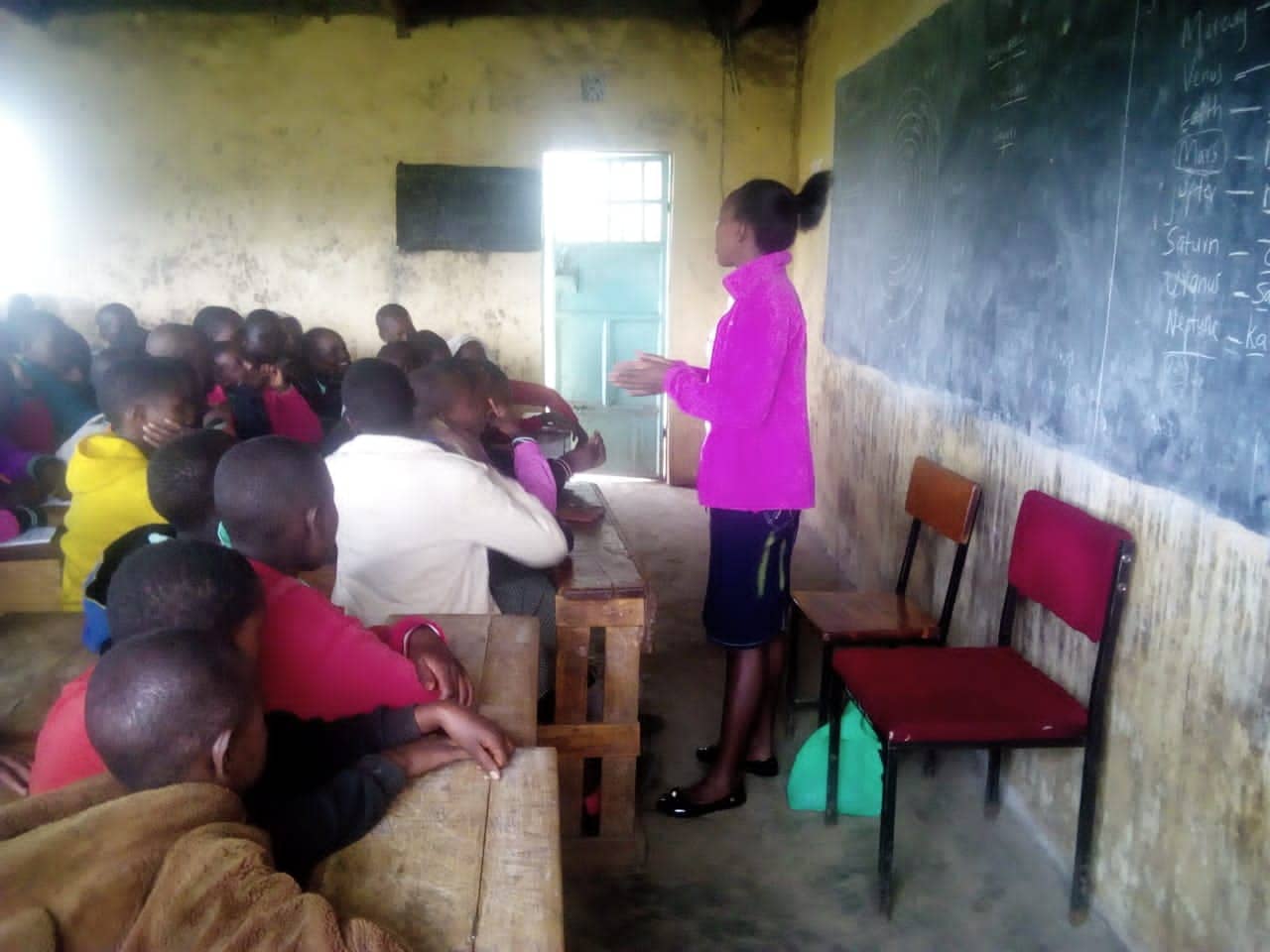Monica is Crossing the Technology Gap and Wants More Girls to Join Her
Oct 4, 2020

Monica
Monica is a 20 year old Leadership and Entrepreneurship Incubator (LEI) Program alum from rural Kenya. An undergrad at Egerton University, Monica is pursuing a Bachelor’s degree in Agricultural Education, studying the full range of farming concerns, from biology to technology. Her coursework and research cover specialized subjects such as plant anatomy and morphology, crop production, plant breeding, field operations, statistical and research methods in agricultural education, soil and water management, agricultural development and rural management. All of her learning depends on having access to the kinds of digital tools that complex learning demands of today’s students, especially college students. Monica knows she is fortunate. And she worries about all the children and teens, especially in rural East Africa, who don’t have access to digital tools, for whom the technology gap is wide and deep. How do they learn? How do they achieve their goals? How can they aspire when there is no digital path forward? How do they become members of the so-called digital generation?
The Importance of Digital Literacy for Girls, and for Community
Given her rural background, Monica is fully aware that girls from pastoral communities like her own face serious challenges in overcoming the technology gap – what is referred to as a gender digital divide. While some boys can, most girls can’t buy laptops or smartphones, meaning, they also don’t learn the skills to use them. And this digital divide is not just a matter of having money. Girls face cultural as well as financial restrictions. As such, for now, girls are destined to lag behind. Sadly, even if digital devices were magically placed in their hands, low-quality internet networks or cellular service would undermine their reliability and value. This is another issue that must be addressed.
Monica contends access to digital devices and skills, along with greater connectivity, must be improved. Now, as a college student, she knows the primary resource for designing any extensive research is information flow, which means digital flow. Given her own future career, access to digital technology could help her transfer school-based knowledge into agrarian practice, to improve crop varieties and livestock well-being, farming methods, online marketing, and awareness of the newest developments in the agricultural sciences. But what if that access isn’t available to her outside the college classroom? What if, when she returns home to share her knowledge and help her community, her education gets stymied by insufficient digital resources? This is Monica’s dilemma. This is rural East Africa’s dilemma.
Paying it Forward: The Road Home

Monica
Monica says her devotion to agriculture comes from having grown up in a farming family. From experience, she trusts that the knowledge and skills she is learning through her coursework and field activities will pave the way toward empowering not just herself but her community. With the benefits of her college education, Monica’s goal is to help others in her community improve their agricultural production, to offer guidance in such labor and capital-intensive technologies as planting and fertilizing, managing pests, and purchasing and training of advanced tools and equipment. By sharing her knowledge, Monica hopes other farmers will eventually enjoy increased production and financial profit.
With that profit, Monica hopes to see sustainable livelihoods flourish in her community. She hopes that as livelihoods increase, more families will be able to afford school and hence more academic opportunities will open up for youths, especially young girls.
Paying It Forward: Girltalk
One of the tenets of Asante Africa is the notion of paying it forward: When you learn something you pass on the knowledge to others to create ripples of change. As an appreciative LEI alum, Monica has embraced the pay it forward philosophy as a way of addressing the stereotypes, inequalities, and productive challenges that face girls from pastoralist and patriarchal communities. She has seen first-hand how low self-esteem, unequal opportunities, and simple neglect keep girls from rising to their full potential. For her, paying it forward means erasing those setbacks.
Now well on her way toward a rare college degree, Monica pays it forward by serving as a role model to the girls in her community. During holidays at home, she hosts empowerment forums for girls, educating them about their sexual reproductive health and rights. Her aim is to instill positive attitudes and counter societal attitudes that suppress local girls. She believes that what a boy can do a girl can also do.

“I involve myself in many activities in my community to prove that yes — we have that ability to do something unique as girls. I empower my peers to be self-reliant in society and this encourages many girls to expand their visions and dreams for transforming their lives and their communities.” Monica credits Asante Africa’s LEI program for teaching her the organizational and problem-solving skills, and giving her the confidence to manage challenging situations that have helped her pursue her ambitions. Now, she wants to pass on those skills and confidence to other girls.
International Day Of The Girl Child: Digital Generation, Our Generation
Monica is yet one more example of what girls are capable of and how they can contribute to their communities, if given the tools. It starts with school: getting into school, staying in school. Schools and communities in Africa must cross that vast technological gap that separates them from the rest of the world. Girls like Monica must be given the tools to achieve all that they can, for themselves and for their communities.
That’s why the theme for this year’s International Day of the Girl Child is Digital Generation, Our Generation. Its purpose is to draw attention not only to the technological gap that exists around much of the world, but also to the digital gender divide. The hope is that attention will lead to actions and solutions.
Asante Africa is committed to girls like Monica and their communities, to putting more skills into more minds, to putting more tools into more hands. Not just on International Day of the Girl Child, but on all days of the year. And you can help us. Click the link below to find out how.
